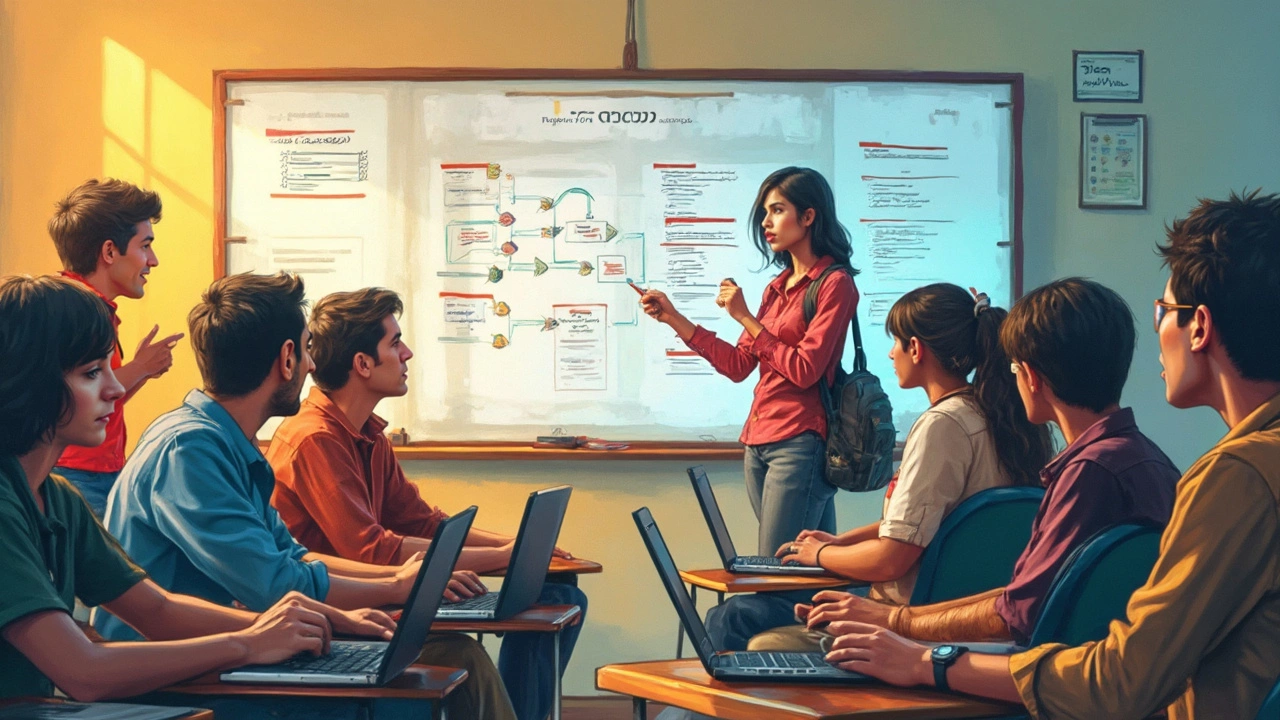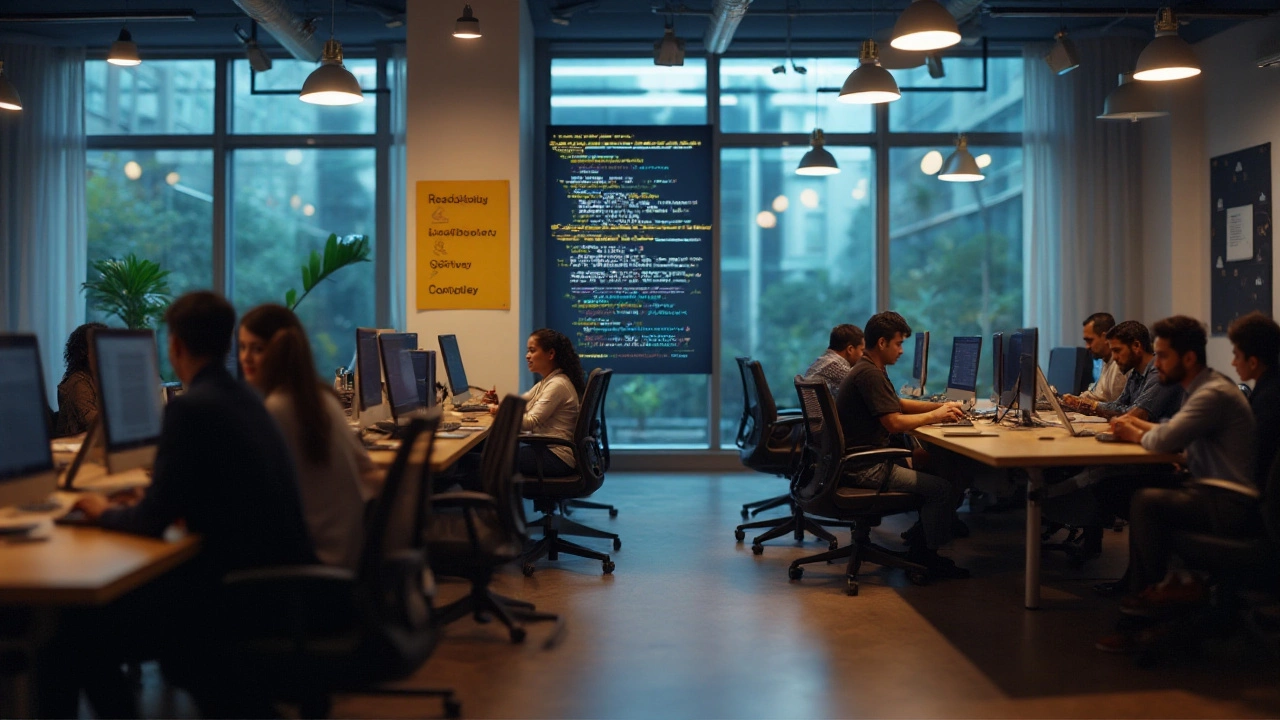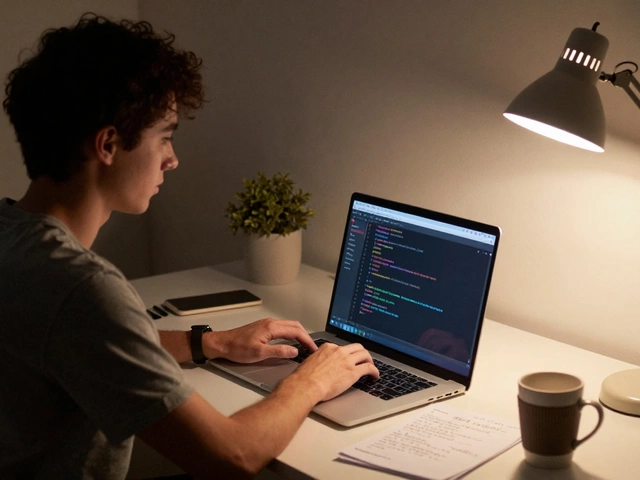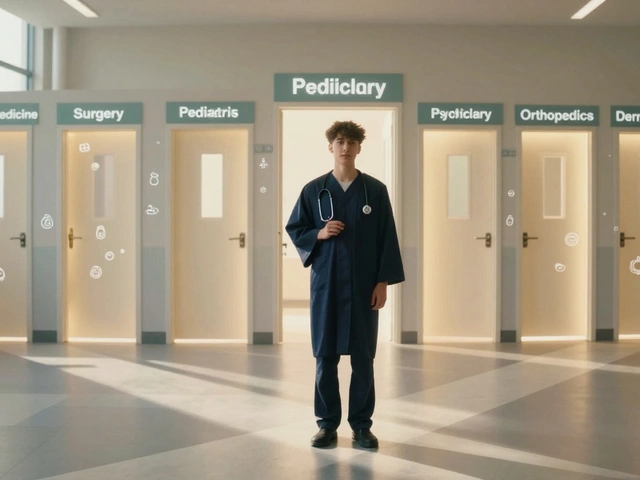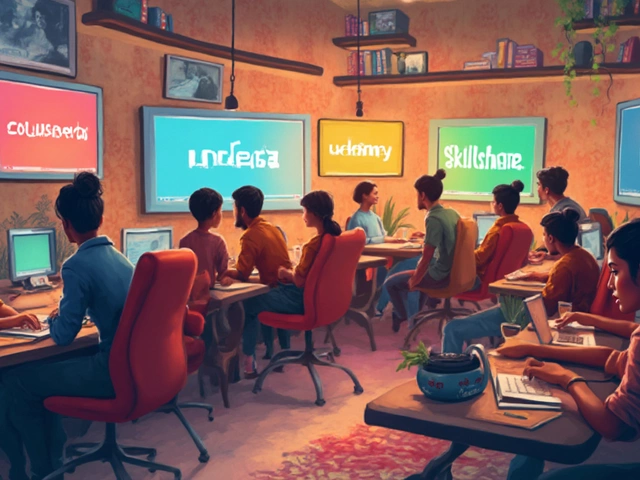So you're ready to learn a tech skill, and your search results are littered with both 'coding' and 'programming.' Spoiler: they’re not two names for the exact same thing. Coding’s like speaking in lines of a language so the computer does what you tell it. Programming, though? That’s more like giving the computer a game plan—organizing, designing, and thinking through how everything fits together.
If you’ve wondered why some bootcamps shout about teaching you to program, while others just call it 'coding class,' you’re not alone. A lot of folks sign up for one and realize halfway through that it’s heavier or lighter than they expected. Getting clear on what each path requires—and where you land—can save you wasted effort and money.
Both coding and programming can get you into tech, but they nudge your brain in different directions. Coding’s hands-on and straightforward, sort of like assembling furniture with an instruction book. Programming expects you to write the instruction book first. Recognizing what each involves isn’t just nitpicking—it totally affects your frustration level and your future job options.
- Programming vs Coding: What’s the Actual Difference?
- Why One Might Be Better For Beginners
- Skills and Mindset: Who Thrives Where?
- Real-World Tips for Choosing Your First Classes
Programming vs Coding: What’s the Actual Difference?
Ever noticed how people throw around 'programming' and 'coding' like they're twins? Here’s the truth: they’re related, but not the same job. Programming is big-picture stuff. You’re building the blueprint: planning what an app or website does, spotting where things can break, figuring out how pieces talk to each other. Coding is what happens after—you write the actual lines of code that make the plan come alive.
Think of it like building a house. A programmer is the architect, mapping out the whole thing. The coder is the team that puts up the walls, windows, and wiring, following instructions from the plan. Sometimes one person does both, but in bigger jobs, they split up.
- Coding: Writing code in a specific language (like Python, JavaScript, Java).
- Programming: Includes coding, but adds design, problem solving, and testing.
- Coding is about syntax and structure; programming deals with logic and architecture.
If you want a practical example: try building a simple calculator in Python. Coding gets you to a point where it adds numbers. Programming handles weird stuff: what if someone types in a letter, or tries to divide by zero? That’s error-checking, user experience—classic programming territory.
Here’s a quick look at how the two stack up in the tech world:
| Aspect | Coding | Programming |
|---|---|---|
| Focus | Writing code | Designing & solving problems |
| Typical Tasks | Translating instructions into code | Planning, debugging, testing, architecture |
| Skill Level Needed | Beginner to Intermediate | Intermediate to Advanced |
| Learning Curve | Faster to start | Takes more time |
| Main Output | Functional code snippets | Complete applications/projects |
So, when you see a class labeled "coding," expect hands-on practice with code. If it’s "programming," get ready for bigger projects and more complex thinking. Different jobs ask for different mixes, but tech companies almost always look for both.
Why One Might Be Better For Beginners
If you’re new to tech, you’ll probably see the words coding and programming everywhere. But which path makes life easier for a beginner? Here’s where it gets interesting—coding usually wins, and for good reasons. Coding’s all about telling the computer what to do, step by step. You write lines in a language like Python or JavaScript, hit ‘run,’ and see the result pretty much instantly. That quick feedback gives newbies a real kick and helps you catch mistakes early.
Programming comes with more moving parts. It’s not just solving one little problem; you’re piecing together a bunch of tasks, organizing how these tasks work together, then writing code for all these pieces. Imagine building a bookshelf versus designing your own IKEA product line. More planning, more thinking ahead. For total beginners, this can feel like too much pressure—lots of folks end up frustrated and quit.
In a survey run by Stack Overflow in 2023, nearly 71% of developers said they started with basic coding before jumping into deeper topics like software design and debugging. That’s not just chance—it’s an easier on-ramp.
| Route | Average Dropout Rate (Year 1) | Requires Project Planning? |
|---|---|---|
| Coding Bootcamp | 22% | No |
| Programming Degree Course | 45% | Yes |
You don’t need to reinvent the wheel to get started. A good strategy looks like this:
- Start with a beginner-friendly coding language—Python is usually the safest bet.
- Pick one simple project (like a calculator or a guessing game) and focus just on getting it to work.
- Once you’re seeing results, try to understand why your code does what it does.
- Only after you feel comfortable with little projects, start looking at bigger stuff—like how your programs can talk to each other or solve more complex problems.
That’s the smoothest way to build skills with less pain and more fun. If your goal is to change careers or just dip a toe in, starting small helps you hold onto your bounce. Programming skills can come later—don’t rush it, or you might end up hating the whole thing.
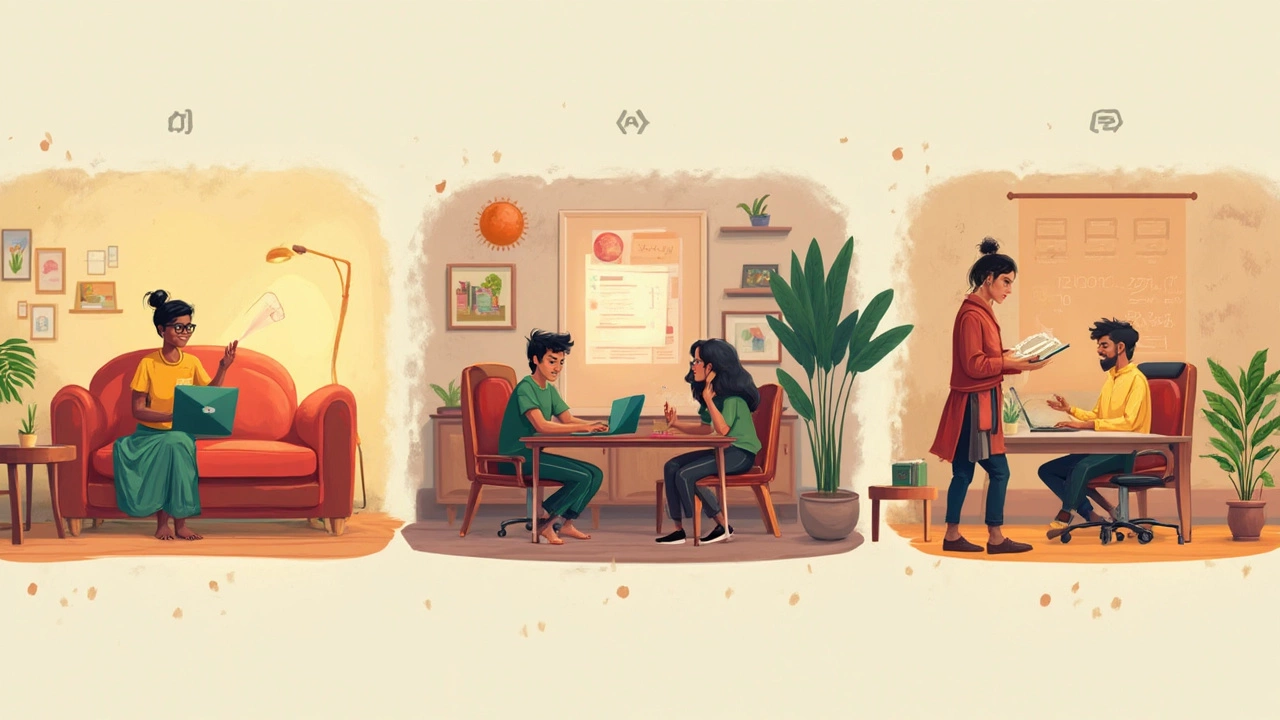
Skills and Mindset: Who Thrives Where?
Picking between coding and programming isn’t just about what sounds cooler. It’s about your natural habits and what gets you excited. Some people like to dive right in, tinker, and see stuff happen fast—others want to know why things work, lay out the big picture, and solve problems at a deeper level.
If you love breaking tasks into clear steps, following examples, and getting hands-on right away, coding gives instant results. It’s about using an existing language (like Python or JavaScript) to write short scripts or apps that do something specific. You’re translating instructions into machine talk without needing to plan out everything ahead.
On the flip side, programming asks for more planning. You’ll map out how everything fits together, like a coach building a game strategy. It isn’t just about writing code. You need to picture how different parts of a program connect, handle big problems, and fix sneaky bugs that pop up later. Folks who love organization, creative problem-solving, or seeing the whole system tend to thrive here.
Here’s a quick breakdown of traits tied to success in each path:
- Coding: Detail-oriented, enjoys learning by doing, likes working in clear, small steps, patience with trial and error.
- Programming: Enjoys solving puzzles, thinks bigger-picture, patient with complex issues, likes organizing information and systems.
Many coding bootcamps show that people with zero experience can finish a project within just three months. The tricky part? According to a Stack Overflow survey from 2023, 55% of new developers feel overwhelmed once they move from basic coding into full-scale programming projects.
| Skillset | Best Fit For | Common Job Titles |
|---|---|---|
| Basic Coding | Quick learners, detail lovers | Web Content Updater, Junior Web Developer |
| Programming (full-stack) | System thinkers, big-picture planners | Software Engineer, Backend Developer |
Before jumping in, think honestly about what grabs your attention. Coding is great if you want easy wins or entry-level jobs fast, while programming may suit you if building entire systems or solving tough tech challenges gets you fired up. You don’t have to stick with just one, but knowing what fits your groove will help you choose smarter coding classes from the start.
Real-World Tips for Choosing Your First Classes
Picking your first course in tech shouldn’t be a shot in the dark. There are real differences in time, money, and the kind of work you'll be able to do later. Here’s how you can avoid rookie mistakes and get the most out of your first step.
- Decide your end goal: Want to build websites fast? Coding classes in HTML, CSS, or JavaScript might get you there in weeks. Looking to build whole apps or get into software engineering? That’s where programming classes—maybe starting with Python or Java—come in.
- Look for hands-on projects: Theory is great, but you’ll learn faster by actually typing out code. Check if you'll build something real, like a calculator, a simple game, or even a basic app. Project-based classes usually have way better retention rates.
- Check class reviews—really read them: Reviews can tell you whether the teacher is clear, if assignments are tough but fair, or if folks got stuck after week two. Sites like Course Report or actual Reddit threads can spill the real tea.
- Consider your schedule and learning style: Some people team up in live, instructor-led classes; others crush it in self-paced video courses. If you get distracted easily, you’ll probably finish more work in a structured class.
- Don’t get fooled by price: A $9.99 video course might seem tempting, but industry reports have shown that completion rates for super cheap, self-paced classes are under 15%. You might get more out of a pricier bootcamp if they offer support and a clear path to jobs.
Here’s a peek at what beginner coding and programming classes typically expect from you:
| Class Type | Typical Duration | Time Commitment/Week | Cost Range (USD) | Prerequisites |
|---|---|---|---|---|
| Intro Coding (HTML/CSS/JS) | 2–8 weeks | 5–10 hours | $0–300 | None |
| Beginner Programming (Python/Java) | 4–12 weeks | 8–15 hours | $50–800 | Basic math/logic |
| Bootcamp (Full Stack Web Dev) | 8–24 weeks | 15–25 hours | $1,000–15,000 | Some coding experience |
If you want the quickest inroad to seeing results, dip your toe with an intro coding course. But if you’re gunning for a real career in building stuff top to bottom, aim for a true programming class. Stay honest with yourself about your time, budget, and motivation. Skipping these checks is why loads of people bounce from courses without learning much—don’t be that guy.
And if a class promises you the world with zero effort? Move on. Effective learning takes practice and a little struggle. The good news: tech skills stack, so whatever you pick, you’re building a foundation. Just make sure it’s a strong one.
